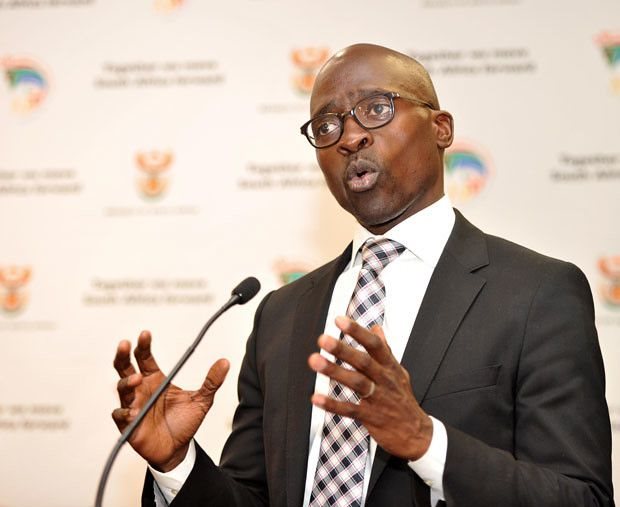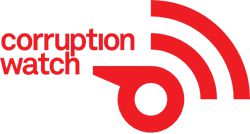The facilitators and followers in the state capture project: Eskom

His first report, released to the public last week, characterises the key players whom Zondo says enabled the Gupta family’s state capture project by flouting processes that were meant to protect state owned entities (SOEs) from undue influence.
“Mr Gigaba’s evidence that he would not have been involved in operational matters must be rejected. Mr Gigaba was prepared to do wrong for the Guptas or Mr [Jacob] Zuma. A number of incidents can be pointed out in support of this,” Zondo writes in the report.
The report zooms in on the dealings that Transnet, Eskom and SAA had with TNA Media, the parent company of the New Age newspaper and later television channel ANN7.
In the case of Eskom, it highlights the major procurement policy breaches surrounding three contracts entered into between the power utility and TNA and how they did not yield benefits for Eskom, despite being characterised as opportunities for exposure through the TNA Breakfast Briefings on SABC’s Morning Live.
During the terms of former CEOs Brian Dames and Colin Matjila (acting) – between 2012 and 2014 – Eskom spent millions in sponsorship on the breakfast briefings, despite the proper processes for such not being followed. The proposal for one such contract – controversially approved by Matjila for R43-million supposedly to seek exposure for Eskom’s 49M programme – aimed at creating awareness for higher LSMs on energy usage. This despite substantial pushback both internally, and from Parliament.
Processes not followed
“Mr Matjila was the key facilitator at Eskom. Shortly after he took up the position of Acting-CEO, he approved the largest sponsorship contract with TNA that Eskom had ever entered into. He did so despite not having the authority to enter into a contract of this size and at a time when there was no evidence of any value to be derived from the services offered by TNA,” writes Zondo.
Zondo’s report also singles out the conduct of Chose Choeu, Eskom’s divisional executive for corporate affairs, as a key player in the dealings with TNA, noting that in his testimony before the commission he always attributed the motivation behind his decisions to pressure from either CEO as well as Gigaba. Zondo concluded that Choeu did not act in Eskom’s best interests in facilitating the contracts with TNA. Eskom’s head of strategic marketing, Pieter Pretorius, is also quoted as a key witness for helping the commission to fill the gaps of what happened in this period.
The genesis for the first contract was an August 2011 meeting between Choeu, Dames, Atul Gupta and TNA representative Jacques Roux. It was TNA’s first pitch to Eskom, and in that conversation Dames agreed that he would support TNA and made a commitment to do so. “Without following the usual process, Mr Dames simply committed himself to contracting with TNA on behalf of Eskom.” Dames has never testified before the commission.
The first contract was concluded the following year in April for advertising in the New Age newspaper at a cost of R4m, and sponsorship of six breakfast briefings at a total cost of just over R7m. The second contract, which followed months later in November, was for an additional four business breakfasts, and was for R4m.
Spending Eskom money despite resistance
In between these contracts, and for a while after the second one, resistance grew internally towards the dealings with TNA. The family’s public profile and repeated questioning from Parliament over Eskom’s relationship with TNA did not, however, deter Matjila from entering into a third contract with TNA, this time for three years and about 36 breakfast briefings, at a significantly higher cost to Eskom of R43m. Choeu admitted, according to the report, to having been placed under so much pressure by Matjila that he participated in the altering of the contract to exclude an early termination clause advised by Eskom’s head of legal and compliance.
The sponsorships committee rejected the proposal for the November deal on the basis that the earlier one had yielded no benefit for the parastatal. Despite this, Matjila was persistent in securing the contract.
Zondo notes: “Mr Pretorius explained that under the sponsorship policy, there had to be monitoring and evaluation of the success and effectiveness of a sponsorship before it could be entered into again, but there was no such evaluation done before the second TNA contract was concluded.
“The Commission’s investigations revealed how key role players enabled the project of state capture to take hold in these entities and thrive for a number of years, despite the existence of certain institutions designed to protect our democracy, including Parliament.
“The evidence shows that there emerged at least two categories of people within the affected entities which allowed the Guptas to secure millions of Rands of public funds for themselves over a number of years. Facilitators and followers.”
The facilitators, Zondo adds, were compliant officials who followed the orders from the Guptas seemingly without question or hesitation. They were not concerned about what the Guptas’ influence would do to the welfare of their institutions.
The category he identified as “followers” were the subordinates to the facilitators who did not stand up to their superiors or speak out when there was evidence of corruption in their organisations.
Matjila received notices of witnesses who had implicated him in state capture, but did not respond to them. According to Zondo, the commission’s investigators also made several attempts to reach him, but were not successful.
This article was originally published on Corruption Watch.
Source: Corruption Watch

Corruption Watch (CW) is a non-profit organisation launched in January 2012, and operates as an independent civil society organisation with no political or business alignment. CW is an accredited Transparency International chapter that fights against the abuse of public funds, relying on the public to report corruption. These reports are an important source of information to fight corruption and hold leaders accountable for their actions.
Go to: www.corruptionwatch.org.za
























